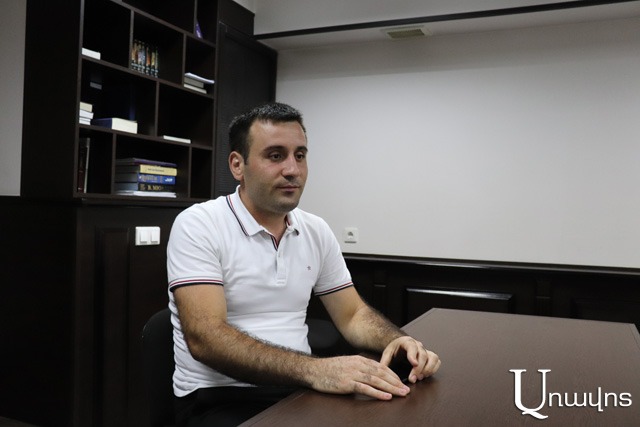On 12 July, the first sitting of the Anti-Corruption Policy Council, headed by Prime Minister Nikol Pashinyan, took place. The Council formed by the decision of June 24 includes the Prime Minister, the Deputy Prime Minister coordinating the sphere, the Prime Minister’s Chief of Staff, the Minister and the Deputy Minister of Justice, the Chairperson of the Commission on Ethics of High-Ranking Officials, the Ombudsman, the Chairman of the NA Standing Committee on State and Legal Affairs, 5 representatives of civil society organizations.
Previously, a similar Commission against Corruption was functioning headed by Prime Minister Hovik Abrahamyan. Further, Karen Karapetyan assumed the position ex-officio. At that time, the committee was criticized for the inclusion of officials involved in the commission and leading it, as these officials were considered corrupt as well.
Mr. Artyom Mesropyan, Lawyer/Expert of the CSO Anti-Corruption Coalition of Armenia, in the interview with www.aravot.am said that there is no difference between the previous and present councils in terms of functionality. The difference between previous and present councils, according to the expert lawyer, is in the selection of the people, CSOs involved in the council; however the differences are not essential. “The former council could have continued its activities.”
According to Mr. Mesropyan, we cannot say that the former council did not succeed at all. Particularly, a number of laws have been passed since 2016 aimed at establishing an institutional anti-corruption institutional system in Armenia: the law on the creation of the “Corruption Prevention Commission”, the law “On Criminalization of Illicit Enrichment”, the Law on Protection of Whistleblowers” and so on.
By the way, currently it is reported that there were three representatives of the civil society in the former Council, whereas now there are five.
Artyom Mesropyan clarifies that due to the efforts of the CSO Anti-Corruption Coalition five members of the civil society were included in the composition of the Council in 2015-16. He noted that the requirements for CSOs that are now included in the council have been further mitigated. Previously, NGOs had to meet more stringent requirements.
The session of the Anti-Corruption Policy Council held on 12 July, where Prime Minister Nikol Pashinyan repeatedly stressed the government’s political will to combat the corruption. Since the revolution of 2018, our interlocutor records that the government’s functioning in the anti-corruption agenda is, in some ways, invisible. “The institutional systematic steps are just not seen. Approaches are not clear yet. Today, a new anti-corruption strategy is proposed for public discussion where the separated institutional model for fight against corruption is proposed, but the discussions are ongoing and it is not clear whether the government will give preference to having a universal anti-corruption body. These are the gaps that cause a number of questions.”
Other details in the video video of the source website















